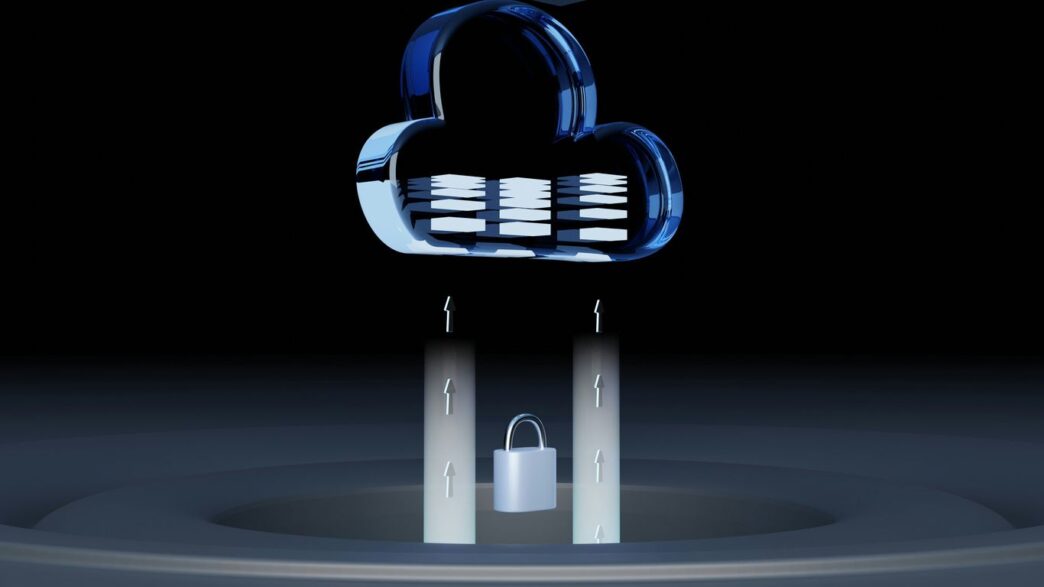So, you’re thinking about using MEGA cloud storage, huh? It promises a lot of space and some pretty serious privacy features. But is it really as secure and private as it claims? We’re going to break down what MEGA offers, how their security actually works, and what people are saying about it. We’ll also look at how to keep your stuff safe if you decide to use it, and how it stacks up against the big names like Google Drive. Let’s get into it.
Key Takeaways
- MEGA cloud storage provides a generous amount of free space and uses end-to-end encryption, meaning your files are encrypted before they leave your device.
- While MEGA states only you can access your encrypted files, some past research suggested potential vulnerabilities in how encryption keys were handled.
- MEGA’s privacy policy receives a ‘Grade C’ from ToS;DR, citing concerns like third-party cookies for ads and potential data retention for business reasons.
- User feedback on platforms like Reddit generally views MEGA as safe, though some users mention concerns about metadata collection and advise extra precautions.
- To boost your security on MEGA, it’s recommended to use strong passwords, enable two-factor authentication, and consider encrypting files locally before uploading.
Understanding Mega Cloud Storage
Mega Cloud Storage is a service that lets you keep your files online and access them from anywhere. It’s known for offering a pretty generous amount of free storage when you first sign up, often around 20 GB. If that’s not enough, they have paid plans that give you even more space and some extra features. You can also share files and folders with other people, and even work on things together in real-time. They’ve also got a chat feature built-in for secure messaging and video calls.
What Mega Cloud Offers Users
Mega aims to provide a secure place for your digital life. They give users a substantial amount of free storage, which is a big draw for many. Beyond just storage, Mega allows for easy file sharing and collaboration. Think of it as a digital locker that you can open up to friends or colleagues when needed. They also offer MegaChat, which is integrated directly into the platform for private conversations and meetings. It’s a way to keep your communications and your files in one place.
Key Features of Mega Cloud
Mega really pushes its security features, especially its end-to-end encryption. This means your files are scrambled on your device before they even get uploaded, and only the intended recipient can unscramble them. This is a big deal because it means Mega itself can’t peek at your files. You also have control over your encryption keys, which is another layer of protection. They also offer features like password-protected links and links that expire, giving you more control over who sees your shared files and for how long. It’s a different approach compared to some other cloud services that might scan your data.
Mega Cloud’s Free and Paid Tiers
Mega has a couple of ways to use their service. The free tier is quite generous, giving you a good chunk of storage to start with, often around 20 GB. You can sometimes earn even more free space through various promotions they run. For those who need more room or advanced features, Mega offers paid plans. These plans scale up the storage capacity and might include things like increased bandwidth or better collaboration tools. It’s worth looking at what each tier provides to see if it fits your needs, especially if you plan on storing a lot of data or need advanced sharing options. When comparing cloud storage, it’s important to look at how these plans stack up against competitors, like how Mega compares to Google Drive.
| Plan Type | Free Storage | Paid Storage Options | Key Benefits |
|---|---|---|---|
| Free | ~20 GB | N/A | Basic cloud storage, file sharing |
| Paid | N/A | Multiple tiers (e.g., 400 GB, 2 TB, 8 TB) | Increased storage, higher bandwidth, advanced features |
Mega Cloud Security: A Deep Dive
When we talk about cloud storage, security is usually the first thing on people’s minds. Mega makes a big deal about its security, and for good reason. They use a type of encryption called end-to-end encryption, which is pretty standard for services that want to claim they’re private. But what does that really mean for you and your files?
End-to-End Encryption Explained
So, end-to-end encryption, or E2EE, basically means that your data is scrambled on your device before it even leaves to go to Mega’s servers. Think of it like putting your files in a locked box, and only you have the key. Mega itself doesn’t have the key to unlock that box. This is a big deal because it means that even if someone managed to get into Mega’s servers, they wouldn’t be able to read your files. Mega claims this is how they protect your data, and it’s a pretty strong claim. They even say that they can’t access your files because of this setup. It’s a key part of their privacy promise.
User Control Over Encryption Keys
Part of what makes Mega’s encryption system work is that you, the user, are in control of the encryption keys. This is directly tied to the end-to-end encryption. Because Mega doesn’t have the keys, they can’t decrypt your files. This puts the power squarely in your hands. If you lose your key, you lose access to your files, which is a bit of a double-edged sword. It means Mega can’t just hand over your data if a government asks, but it also means you need to be really careful about managing those keys. Keeping your keys safe is as important as keeping your password safe. You can find more information on how to manage these keys securely on their help center.
Past Security Concerns and Research Findings
Now, it’s not all smooth sailing. There have been some questions raised about Mega’s security in the past. Back in 2022, some researchers from ETH Zurich University put out a report suggesting that there might have been ways for someone controlling Mega’s platform to get hold of user keys, especially after a few logins. This would, in theory, allow them to read files. Mega responded to this research, saying they fixed the issue and that it only affected a small number of users for a short time. They also make their client app source code public, which is a good step for transparency. However, these kinds of reports can make people a bit nervous. It’s also worth noting that while the file contents are encrypted, Mega does collect some metadata, like when you upload files or your IP address. This is something to consider when thinking about overall privacy. For instance, understanding how different countries handle data privacy is important, and Mega, like other tech firms, has to navigate this complex legal landscape.
Assessing Mega Cloud’s Privacy Stance
So, how private is Mega Cloud, really? It’s a question a lot of people ask, and honestly, the answer isn’t a simple yes or no. Mega makes a big deal about its security, claiming the "highest level of online security and privacy." They use something called zero-knowledge encryption, which basically means your files are scrambled on your device before they even hit Mega’s servers. This is supposed to mean that Mega itself can’t peek at your stuff. Pretty neat, right?
Mega Cloud’s Privacy Policy and Ratings
Mega’s privacy policy is a bit of a mixed bag. On one hand, they follow the EU’s GDPR rules, which are pretty strict. This means all users, no matter where they live, get those protections. That’s a plus. However, a group that reviews terms of service, called Terms of Service: Didn’t Read (ToS; DR), gave Mega a "Grade C." For comparison, services like Dropbox and iCloud got a "Grade D," and Google Drive got an "E." So, Mega isn’t the worst, but it’s not exactly getting top marks either. ToS;DR points out that Mega uses cookies for ads and might keep your data even if you ask them to delete it, for business or legal reasons. They also use things like web beacons and device fingerprinting, and have a lot of third parties involved in their operations. They might also use your info for marketing.
Metadata Collection and Its Implications
Even with all that encryption, Mega does collect some information about how you use the service. This is called metadata. Think of things like when you uploaded a file, how big it was, or your IP address. While they can’t read your actual files, this metadata could potentially give them (or someone else) clues about your online habits. It’s not as bad as some services, but it’s something to be aware of if you’re super concerned about every little digital footprint. It’s important to understand how cybercrime can exploit such data, so staying informed is key understanding cybercrime threats.
User Control Over Shared Data
When it comes to sharing files, Mega puts the control in your hands. You can decide who sees what and manage those permissions yourself. This is pretty standard for cloud storage, but it’s good that Mega emphasizes it. It means you’re not accidentally sharing things you didn’t mean to. However, it still relies on you being careful about who you share with and how you manage those links. If you share a link with someone, and they then share it further, Mega has no way of knowing or controlling that. So, while the platform gives you tools, the ultimate responsibility for secure sharing falls on you.
Community Perceptions of Mega Cloud Safety
When you start looking into what people think about Mega’s safety, you’ll find a pretty mixed bag of opinions, but a lot of it seems to boil down to trust in their encryption.
User Feedback on Mega Cloud from Reddit
On platforms like Reddit, the general vibe around Mega is often positive regarding its security features. Many users point to Mega’s end-to-end encryption as a major plus. The idea that your files are scrambled on your device before they even hit Mega’s servers means that, in theory, Mega itself can’t peek at your stuff. This is a big deal for people who are really concerned about privacy. However, it’s not all smooth sailing. Some Redditors do bring up worries about metadata – things like file sizes, when you uploaded something, or your IP address. While Mega might not see the content of your files, this metadata could still tell a story about your usage habits.
Reported Security Incidents and Causes
Like most online services, Mega hasn’t been completely immune to security hiccups. There have been reports from users about account issues, sometimes leading to concerns about security. Often, though, these incidents seem to stem from users having their login details compromised elsewhere, rather than a direct breach of Mega’s own systems. It highlights a common problem: if your password is weak or reused across many sites, and one of those other sites gets hacked, your Mega account could be at risk too. Mega itself has pointed to password reuse as a likely cause for some past incidents, like a breach detected in late 2023.
General User Sentiment on Mega Cloud
Overall, many users seem to feel that Mega offers a decent level of security, especially considering the generous free storage it provides. The company emphasizes its commitment to privacy, often referencing GDPR compliance. However, there’s also a segment of users who remain cautious, partly due to past research findings that suggested potential, albeit limited, vulnerabilities in the encryption implementation, even though Mega has stated these have been addressed. This caution leads some to take extra steps, like encrypting files locally before uploading them to Mega, just to be absolutely sure their data is protected. It’s a trade-off: Mega offers strong built-in encryption, but for the most sensitive data, some users prefer to add their own layer of protection.
Evaluating Mega Cloud Downloader and Files
So, you’re thinking about using Mega for your cloud storage needs, and maybe you’re wondering about the actual downloader application and, you know, the files themselves. It’s a fair question. You want to make sure what you’re downloading isn’t going to mess up your computer or that the files you’re uploading are actually safe.
Safety of the Mega Downloader Application
Generally speaking, the Mega downloader application is considered safe, but there’s a catch. You really need to get it from the official Mega website or a reputable app store. Downloading it from somewhere else? That’s asking for trouble, as you might end up with a version that’s been tampered with. It’s like buying a used car – you want to know where it came from. Always stick to official sources to avoid malware.
Ensuring the Security of Downloaded Files
When it comes to the files you download, their safety really boils down to who uploaded them. If you’re getting files from a source you trust, they’re usually fine. But, and this is a big but, it’s always a smart move to run an antivirus scan on anything you download, especially if the source is a bit sketchy or unknown. It’s just a good habit to get into, like checking your pockets before you leave a room. You wouldn’t want to accidentally download something nasty, right? Google is also working on ways to warn users about sites that try to trick you with fake download buttons, which is a good step for safer browsing.
Best Practices for Using Mega Cloud Downloaders
To keep things smooth and secure when using Mega downloaders, here are a few pointers:
- Use Official Software: As mentioned, always download the Mega application directly from Mega’s official site or their authorized app stores. This is your first line of defense.
- Scan Downloads: Make it a habit to scan downloaded files with reliable antivirus software. This is especially important for files from less familiar sources.
- Enable 2FA: For your Mega account itself, turn on two-factor authentication. This adds a significant layer of security, making it much harder for unauthorized people to access your account, even if they somehow get your password.
- Manage Sharing: Be mindful of who you share files with. Review your sharing permissions regularly and revoke access for anyone you no longer want to share with. It’s easy to forget who has access to what over time.
Enhancing Your Mega Cloud Experience
So, you’re using Mega, and you want to make sure you’re getting the most out of it while keeping things locked down tight. It’s not rocket science, but there are definitely some smart moves you can make. Think of it like securing your house – you wouldn’t just leave the door unlocked, right? The same applies to your digital life.
Implementing Strong Passwords and 2FA
First things first: your password. This is your main gatekeeper. Don’t use your pet’s name or your birthday. Seriously. A good password is long, a mix of upper and lowercase letters, numbers, and symbols. If remembering that is a pain, a password manager can really help out. It’s like having a super-secure digital vault for all your login details. On top of that, turn on two-factor authentication (2FA). This means even if someone somehow gets your password, they still need a second code, usually from your phone, to get in. It’s a simple step that adds a huge amount of security.
Securely Managing Mega Cloud Encryption Keys
Mega’s big selling point is its end-to-end encryption, meaning only you can read your files. But this relies on your encryption key. If you lose that key, and your password, your files are gone for good. Mega gives you a recovery key. Treat this key like gold – back it up somewhere safe, offline if possible. Think of printing it out and keeping it in a secure spot, or saving it in another trusted password manager. This is your lifeline if you ever get locked out. It’s a bit old-school, but printing it out is a solid way to keep it safe from digital threats.
Encrypting Files Before Uploading to Mega Cloud
While Mega encrypts your files, you can add another layer of protection. Before you even upload a file to Mega, you can encrypt it yourself using separate software. This way, even if there was some kind of breach on Mega’s end, or if someone managed to get into your account, your files would still be unreadable without your personal encryption key. It might sound like extra work, but for really sensitive documents, it’s a worthwhile precaution. It gives you that extra peace of mind, knowing your data is protected twice over. For more tips on keeping your digital life secure, check out this guide on keeping your tech secure.
Comparing Mega Cloud to Competitors
So, you’re wondering how Mega stacks up against the big names like Google Drive and Dropbox? It’s a fair question, especially when you’re thinking about where to put your important files. Let’s break it down.
Mega Cloud vs. Google Drive: A Privacy Comparison
When it comes to privacy, Mega really tries to set itself apart. They emphasize their end-to-end encryption, meaning your files are scrambled on your device before they even get sent to Mega’s servers. The idea is that only you, with your special key, can unscramble them. Mega itself can’t peek at your stuff. Google Drive, on the other hand, while it offers encryption, doesn’t always provide that same level of client-side, end-to-end scrambling for everything. This means Google could potentially access your files if they wanted to, or if legally required.
Mega also claims to have no trackers or hidden algorithms scanning your files, unlike what they suggest some other services might do. They also offer features like password-protected links and links that expire, giving you more control over who sees what and for how long. Google Drive has some sharing controls, but Mega seems to push the privacy aspect harder.
Feature Comparison: Mega Cloud, Dropbox, and Google One
It’s not just about privacy, though. Features matter too. Here’s a quick look at how they compare:
| Feature | MEGA | Dropbox | Google One |
|---|---|---|---|
| Free Storage | 20 GB (can be increased) | 2 GB | 15 GB (shared with Google services) |
| End-to-End Encryption | Yes (client-side) | No (server-side encryption only) | No (server-side encryption only) |
| File Size Limits | None | 2 GB (for free tier) | 5 TB (per account) |
| Password Protected Links | Yes | Yes (paid plans) | Yes (paid plans) |
| Expiring Links | Yes | Yes (paid plans) | Yes (paid plans) |
| Password Manager | Yes (MEGA Pass) | Yes (Dropbox Passwords) | Yes (Google Password Manager) |
| VPN | Yes (MEGA VPN) | No | No |
| File Recovery | Rewind entire storage (up to 180 days) | File recovery (limited time) | File recovery (limited time) |
As you can see, Mega offers a pretty generous free tier and includes features like a VPN and password manager as part of its ecosystem, which is quite a bit more than what Dropbox or Google One typically bundle in their basic plans.
Pricing and Value Proposition of Mega Cloud
When you look at the cost, Mega often comes out ahead, especially if you need a lot of storage. For example, Mega charges around $5 per month for 2 TB of storage. Dropbox’s comparable plan is usually more expensive, and while Google One offers competitive pricing, Mega’s inclusion of extra privacy tools and no file size limits can make it a better deal for some users. Mega’s core value proposition seems to be maximum privacy and features for a lower price point. Of course, pricing can change, and it’s always good to check their official sites for the latest deals and plans. But generally, if privacy and a lot of storage without breaking the bank are your main concerns, Mega is definitely worth a closer look compared to its main competitors.
Addressing Mega Cloud Controversies
Mega Cloud, like many tech services, hasn’t been without its share of bumps and questions regarding its operations and security. It’s always good to look at the whole picture, right? Let’s break down some of the main points that have come up.
Founder’s Claims and Company Responses
Back in 2015, the guy who started Mega, Kim Dotcom, made some pretty serious claims. He suggested that a Chinese investor, who was apparently facing fraud accusations, had taken over the company. Mega, at the time, put out a statement addressing these concerns. It’s a bit of a he-said-she-said situation, but the company did respond to clear the air about its ownership and operations.
Transparency Through Open-Source Clients
One thing Mega has done to build trust is make its client applications open-source. This means that technically minded folks can look at the code themselves. The idea is that if the code is out in the open, it’s harder to hide anything shady. It’s a move towards transparency, letting the community have a peek under the hood.
Data Breach Incidents and Mitigation
No service is completely immune to security incidents, and Mega has had its share. In late 2023, there was a detected data breach on Mega.nz. The company chairman suggested that the cause was likely due to users reusing passwords across different sites, which is a common problem. When a breach does happen, how a company responds and what steps they take to fix it and prevent it from happening again are really important. Mega has stated that the credentials weren’t obtained from their systems directly, pointing to external breaches as the likely source for compromised user accounts.
Here’s a quick look at how Mega’s privacy policy has been rated compared to others:
| Service | ToS;DR Rating |
|---|---|
| Mega Cloud | C |
| Dropbox | D |
| iCloud | D |
| Google Drive | E |
It’s worth noting that while Mega’s policy got a ‘C’, it was still rated better than some major competitors in this specific assessment. However, the assessment also pointed out that Mega uses third-party cookies for ads and might keep user data even after a request to delete it, for business or legal reasons. They also mentioned potential use of web beacons and device fingerprinting, and that many third parties are involved in their operations.
So, Is Mega the Cloud Storage for You?
After looking into it, Mega definitely offers a lot of storage for free, which is pretty appealing. They talk a lot about their encryption, saying your files are locked down tight before they even leave your computer. That sounds good, right? But there have been some questions raised about how truly private it is, with some researchers pointing out potential ways around that encryption. Plus, like many services, they do collect some data about how you use the service, even if they can’t read your files. While they’ve fixed some past issues and offer features like two-factor authentication to boost security, it’s clear that no online service is perfect. If you’re thinking about using Mega, it’s smart to take those extra steps like using strong passwords and maybe even encrypting your files yourself before uploading. It seems like Mega can be a decent option, but you’ll want to be aware of what you’re signing up for and take charge of your own security.
Frequently Asked Questions
What exactly is Mega Cloud Storage?
Mega Cloud Storage is an online service where you can keep your files, like photos and documents, safe in the cloud. Think of it like a digital locker for your stuff. You can also share files with friends or colleagues. They offer a good amount of free storage when you first sign up, and you can pay for more if you need it.
Is Mega Cloud really private?
Mega says it’s very private because it uses something called end-to-end encryption. This means your files are scrambled on your device before they even go to Mega’s servers, and only you have the key to unscramble them. So, Mega itself can’t see what’s inside your files. However, they do collect some information about how you use the service, like when you upload files.
How secure is Mega Cloud?
Mega uses strong encryption to keep your files safe. This means that even if someone managed to get into Mega’s servers, they wouldn’t be able to read your files without your special key. They also offer extra security like two-factor authentication, which is like having a second lock on your account.
What do people on Reddit think about Mega Cloud’s safety?
Many users on Reddit seem to think Mega Cloud is safe, especially because of its encryption. Some users have mentioned concerns about things like account security, but often these issues happen when people reuse passwords that might have been stolen from other websites. Most advice is to use a strong, unique password and turn on extra security features.
Is the Mega Downloader app safe to use?
Yes, the Mega Downloader app is generally considered safe as long as you get it directly from Mega’s official website or trusted app stores. This makes sure you’re not downloading a version that has been tampered with. The safety of the files you download through it really depends on where the files came from – always be careful with files from unknown sources.
What can I do to make my Mega Cloud account even safer?
To boost your security on Mega, always use a strong, unique password that’s hard to guess. Turn on two-factor authentication (2FA) for an extra layer of protection. It’s also a good idea to keep your Mega encryption key safe and maybe even encrypt important files on your computer before you upload them to Mega.














